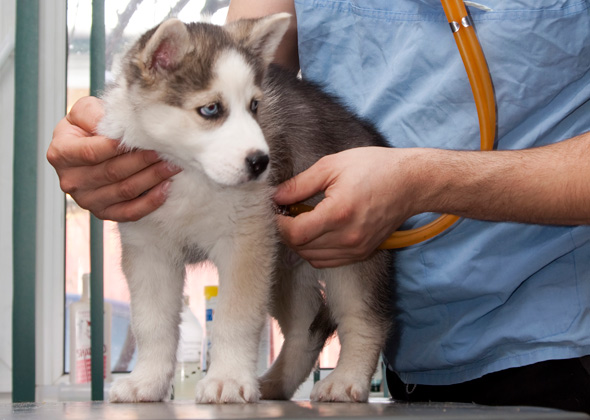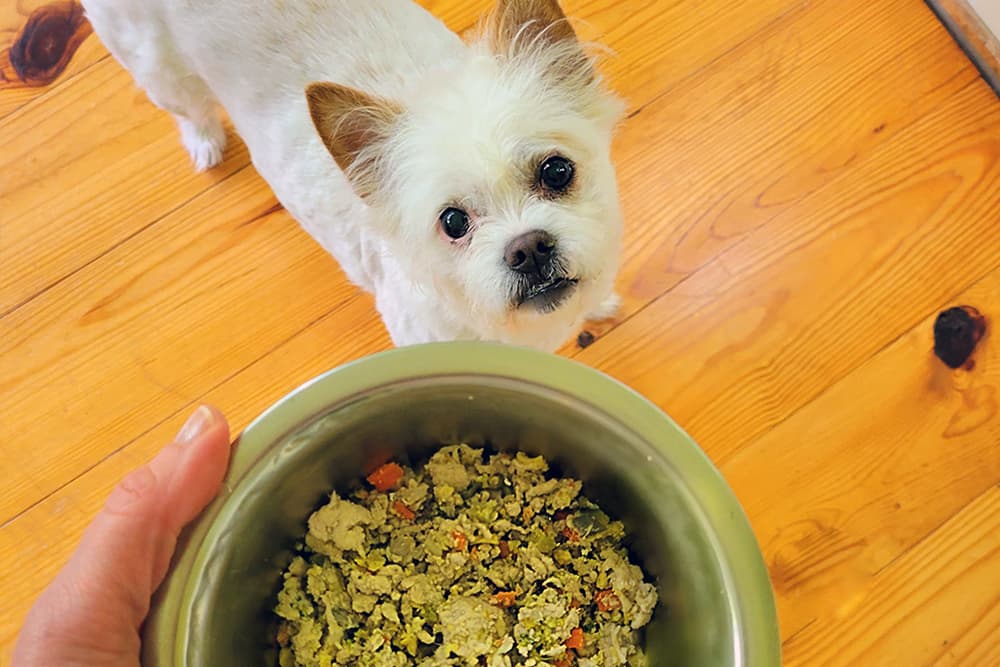How to Select a Puppy Who’s Right for You
Published on January 16, 2014
Though puppies are incredibly cute, not all are an ideal fit for your lifestyle. With the proper research and preparation, you can choose a dog who will be a great addition to your family.

Do Your Research
If you are curious about different breeds, start by getting a book that provides a comprehensive overview of numerous breeds or peruse the more than 2000 articles on our site about dogs both big and small.
You can also ask experts to share their takes on breeds you're considering. For example, veterinarians work with various breeds every day, giving them vast insight about which pets may be suitable for your lifestyle. Dog trainers are another excellent source of information about the needs and behaviors associated with different breeds.

Consider Size, Breeds and Needs
It's important to consider how a puppy will work with your lifestyle when he becomes an adult. Though Great Danes love to cuddle, they grow too large to sit in your lap, and they can clear off a table with the simple flick of a tail. Due to his short legs, a Dachshund may have trouble keeping up with you on a jog.

Grooming and Exercise
These two factors should be another critical part of the decision process. Dogs in the herding group typically require lots of exercise and attention. Other breeds, such as dogs with very long hair, like the Yorkshire Terrier, have fairly intense grooming needs.
In your research, you’ll find that some breeds are also predisposed to certain health issues, like hip dysplasia. Mixed-breed dogs may be less susceptible to these types of issues than purebreds, but this isn’t always the case. If you’re considering a particular breed, ask your veterinarian to review the medical conditions that should be on your radar.

Do a Background Check
Selecting a reputable breeder or rescue group is essential to locating a healthy, well-socialized puppy. If you’re searching for a purebred dog, ask your vet or local breed club to point you in the right direction. Breed-specific rescue organizations are also a great resource for adopting a purebred dog.

Know What to Look For
It’s important to have your puppy examined by a veterinarian as soon as possible. Ideally, this should be done before you bring your new family member home for the first time. In most cases, breeders, shelters and rescue groups provide paperwork verifying that your puppy has been examined by a veterinarian, treated for parasites and has received at least one round of vaccinations.

Observe Your Puppy’s Personality
Choosing a puppy with a good disposition can help ensure a lifetime of happiness and friendship. By knowing what to look for, as well as paying close attention during the selection process, you can learn a lot about your puppy’s temperament, even during a short visit.

Watch Your Puppy as He Plays With Littermates
This is a good way to determine whether your puppy will get along with other dogs later in life. A puppy who shows a healthy interest in playing, yet eases up when a littermate yelps, will most likely socialize well with other dogs.

Gauge How Your Puppy Interacts With People
Ideally, you should be able to observe a prospective puppy as he encounters individuals of different ages and sexes. Puppies should be curious and interested in people; a puppy who cowers or urinates in fear may be poorly socialized and difficult to train.

Roll Your Puppy on His Back
Puppies who struggle excessively or become aggressive when you try to roll them over may have dominance issues. A well-adjusted puppy might wiggle a little but he'll eventually relax and become submissive.

Hold Your Puppy, and Touch His Ears, Mouth and Paws
Puppies should be comfortable when you handle them. If your puppy becomes aggressive or tries to get away, he may not be the kind of dog who will like to lie with you on the couch or allow you to trim his nails.

Get Advice
The tips we've provided are just a few indicators that can help you determine whether a particular puppy is a good fit for you. For more advice on picking the right pooch, check out How to Select the Right Puppy for You or go to the Dog Breed Guide section of our site.





